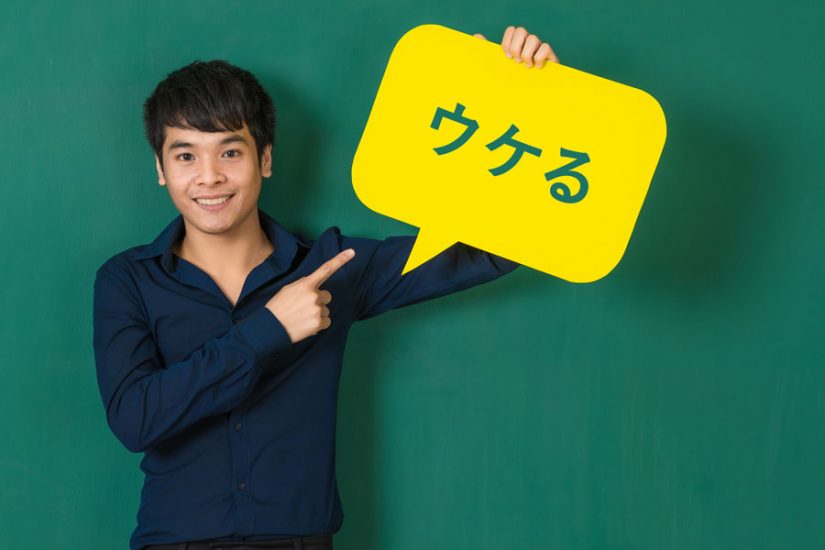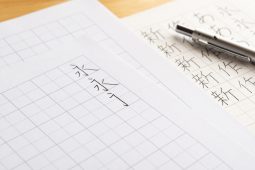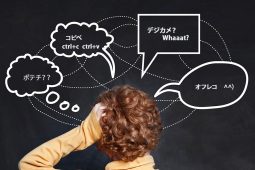So you’ve learned standard, formal Japanese from classes or textbooks, and not long after, you’ve run straight into a brick wall of phrases that weren’t in there at all.This isn’t actually the fault of the textbooks exactly, since slang often moves fast enough that the kind of lifecycle of textbooks (nobody’s making new ones yearly outside universities) can’t really keep up.
It does leave you up against a bit of a wall, though.
A bit of a warning first: This is a listening/reading guide. The idea is to recognise more terms when they’re used, not to use them yourself yet. This is partly because it’s much better to see terms like this used so you get a better idea of how it’s done — more than a short article can cover, anyway — but also because you have to know your audience.It’s not that all slang is rude exactly, but it’s never actively polite either, and to hedge your bets, you’ll want to keep everything formal, polite and/or neutral at first, just like with everything else in speaking Japanese. You can vary it up later once you know who you’re talking to and have the basics figured out.
Internet slang is a whole different topic, and one that’s going to need another article if it gets one at all. Right now, I’ll be going over some (far from all) pieces of slang you might actually hear in person.
超/めっちゃ (Chō/metcha): Both terms of emphasis. Extremely/very/super, that sort of thing. In the same way, it can sometimes be used by itself, but mostly it’s a prefix. In more ordinary Japanese it can replace すごく (sugoku) /すごい (sugoi).
微妙(びみょう/bimyō): A catch all ‘not sure about this’ word. Borderline, uncertain, vague.It can be used to mean you’re not putting much confidence in something, or that, for example, you’re not sure if you can make it to a certain time.It’s also used as a statement of quality; mediocre, maybe a bit dodgy but not horrible.
それ-/な/だ/よ (Sore — na/da/yo): Available with any of the suffixes or none of them.It’s a quick term for agreement and emphasis, roughly equivalent of going ‘yes, that’s it» in English.By the time it’s rephrased as それですよ (Soredesuyo) or something like that, though, it crosses over into something ordinary enough to see on, say, a talk show.
マジ/マジで (Maji/Majide): Serious/Seriously, derived from まじめ (Majime), which also means ‘serious’, but generally to describe a person. Can also be an exclamation rather than a descriptor or emphasis, as in ‘seriously? ‘
This is probably a good time to stop and mention that yes, a lot of slang terms are written in katakana; it’s the alphabet of more modern terms as much as loanwords, quite often. No, there isn’t really a set rule for which way it goes from case to case.
ウケる (Ukeru): An adjective to call something funny, or just said by itself to show you think something is funny.
オス/オッス (Osu/Ossu): Very truncated form of おはようございます (Ohayou-gozaimasu), allegedly born in Japan’s former navy. Used as an informal, short, very masculine-coded greeting now. However, it has also since had the kanji 押忍 applied to it in various martial arts circles, which can mean either ‘press and endure’ or to endure pressure depending on who you ask (it’s mostly sumo arguing for the latter). Here, it’s a formal greeting. Easy to tell from context, at least.
あけおめ (Akeome): Short for あけましておめでとうございます (Akemashite-omedetō), which is the formal New Year greeting. Not hard to see why people decided against the full 15 letter special between friends.
お疲れ・乙 (Otsukare/Otsu): Shortened and extremely shortened form of お疲れ様 (Otsukaresama), which doesn’t have a tidy analogue in English, although somewhere between ‘good job» and ‘thank you» gets halfway there. Basically, it’s part greeting (potentially) but also being grateful for someone’s work and recognising the effort that went in (the literal phrasing acknowledges someone’s fatigue), in one word. You might say it to someone coming off work, for example.
最低 (Saitei): A perfectly normal word which usually means ‘the lowest’, but when used to describe an action or person, it’s pretty much exactly like calling someone or something ‘the worst’ in English.
There’s a lot of ground to cover here, and I recommend doing some research to pick up more terms — given how necessary it is, there’s a lot out there to help new Japanese speakers — but that’s all for now! Why not see how many of these you suddenly start recognising over the next week?








